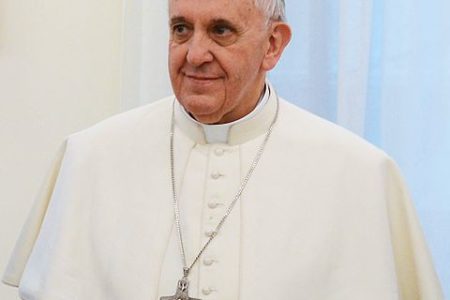In the years between 2008 and 2019, the proponents of critical race theory (CRT) and intersectionality in the Southern Baptist Convention and its seminaries believed that the concepts, ideas, and politically motivated outcomes of both ideologies could be proclaimed without substantial objection or epistemic pushback. For the most part, they were correct, as the specific language, strategic redefinition of terms (doublespeak), and arguments of CRT and intersectionality represented a new, mysterious, gnostic metaphysical challenge that was unrecognizable to most pastors in broader evangelicalism.
Cognitive dissonance reigned in broader Christianity as CRT and intersectionality were introduced into seminaries, universities, and denominations by some of the most prominent names in evangelicalism. Previously trusted names, such as Ligon Duncan, Danny Akin and Albert Mohler, hired professors whose theological and philosophical perspectives were framed by CRT, liberation theologies, and intersectionality. Southern Baptist seminaries provided institutional forums for these new “woke” professors, and the ideas and concepts surrounding critical social justice gained a frisson of hip virtue during the Convention’s, and broader secular society’s, “woke renaissance.” In essence, these men provided the infection of the woke virus as it entered the SBC. It has since spread like a pandemic throughout all of its institutions, including seminaries, conferences, ministries, and individual churches and the congregations they support.
At Southern Baptist Theological Seminary (SBTS), newly hired Associate Professor of New Testament Interpretation, Dr. Jarvis Williams, proclaimed the benefits of CRT while, at the same time, forwarding the concepts of intersectionality in lectures and writings. In a 2017 article in The Witness titled “Intersectionality and Reconciliation in our Churches,” Dr. Williams stated the following:
“Though I’m a marginalized African-American man within white male-dominated evangelical movements (Southern Baptist and Reformed), I’m still part of the privileged male majority in my Christian tribe. My brown, marginalized identity intersects with my male identity. Though my African-American identity has caused me to lose certain privileges and has caused me certain traumatic experiences of racism in both the SBC and in the broader evangelical movement, my male identity affords me certain privileges that are unavailable for many black and brown women in white male-dominated, evangelical Christianity.”
Adding emphasis to the intersectional language of the statement reveals Dr. Williams’s commitment to the intersectional worldview he now claims to disavow, as can be seen below:
“Though I’m a marginalized African-American man within white male-dominated evangelical movements (Southern Baptist and Reformed), I’m still part of the privileged male majority in my Christian tribe. My brown, marginalized identity intersects with my male identity. Though my African-American identity has caused me to lose certain privileges and has caused me certain traumatic experiences of racism in both the SBC and in the broader evangelical movement, my male identity affords me certain privileges that are unavailable for many black and brown women in white male-dominated, evangelical Christianity.”
These highlighted terms are central to the meaning Dr. Williams seeks to convey, and they are the balkanizing language of intersectionality. What Dr. Williams is doing in this paragraph is called “engaging positionality,” which is to say articulating where he stands in relation to “systemic power dynamics” by virtue of his membership in different identity categories, which are treated as identity groups, which are inherently un-Biblical and contrary to the Gospel that unites all people under Christ. They speak openly of “marginalization” and “dominance” that Dr. Williams is “positioned” against, informing what he has to say and to whom he can say it with authority and even naming the Southern Baptist and Reformed movements as “white male-dominated,” which gives them their intersectional meaning. He even uses the word “intersects” explicitly.
When Sovereign Nations first brought attention to this article in 2018, many loyal to Dr. Mohler defended Dr. Williams, stating that Sovereign “doesn’t understand intersectionality” or that we “don’t have the authority to speak on these subjects.” These manipulations have, in recent weeks and months, become clear for what they are: attempts to protect these ideologies from fair criticism and to discredit any who might challenge their insinuation into our society’s institutions, including our seminaries and churches.
As Dr. Mohler began to pivot and change his public positions on CRT and intersectionality, the older version of the article by Dr. Williams was removed and replaced with a new article (https://thewitnessbcc.com/intersectionality-and-reconciliation-in-our-churches/ ), with a third-person new statement from “the author” at the top of the article:
Author’s Note: Dr. Jarvis J. Williams rejects the ideology of intersectionality. He strongly believes in a traditional biblical worldview. Dr. Williams uses the term “intersectionality” in this article simply to refer to the overlapping experiences that one has because of one’s race and gender in a sinful world, a world that is cursed because of original sin, because of the universal and cosmological power of sin, and because of personal sin.
In other words, the original, clear, bold statements of SBTS’s Dr. Jarvis Williams in the original article in 2017, which would lead anyone reading to understand that Dr. Williams not only advocates intersectionality but that Dr. Williams utilizes intersectional lenses to view the world and Christianity, had become politically inconvenient. Now, after a change of strategy by Dr. Mohler, a “statement from the author” appears, claiming Dr. Williams doesn’t really teach intersectionality and that he rejects its underlying ideology, which he plainly subscribed to in 2017 given his engagement of intersectional positionality. This “being strong when unquestioned” and then wholly disowning any claims to the strong position by retreating to a weaker position is referred to as the motte & bailey strategy or the motte & bailey fallacy.
As described at Dr. James Lindsay’s New Discourses:
There is a rhetorical strategy called the “motte and bailey” that is getting increasingly famous lately. This is because it is one of the central tools of the Critical Social Justice movement. In that strategy, named after a kind of castle, a highly defensible “motte” position, like “we just want to treat people more fairly,” is maintained while also pushing a more radical “bailey” position, like “we need to radically remake our school systems so that no one can fail.” Activists advance the bailey and, when pressed on it, retreat to the motte until scrutiny and pressure go away, at which point they return to the bailey.
And this is exactly what has been happening within the Southern Baptist Convention and at Al Mohler’s Southern Baptist Theological Seminary after Sovereign Nations, G3 Ministries, Founders Ministries, Grace to You, Conservative Baptist Network, Conversations that Matter, Pulpit and Pen, Capstone Report, AD Robles, Enemies Within the Church, Voddie Baucham Ministries, and many others took up the cause to push CRT and intersectionality out of the evangelical church. Dr. Williams and The Witness retreated from the “bailey” position, which openly embraced and utilized intersectional language and thought, to the “motte” that characterizes that usage merely as a nuanced way of looking at the universal problem of sin. Simultaneously, Dr. Mohler can be observed suddenly switching course to publicly opposing CRT in 2019 and 2020. But in private, little changed. Dr. Mohler continued to support and employ all of his staff who were previously teaching CRT and intersectionality while dismissing conservative professors such as Dr. Russell Fuller, who opposes it.
More broadly and consonant with these shifts, the SBC has apparently decelerated its journey into wokeness. For example, Dr. Mohler, Dr. Russell Moore, and SBC President JD Greear and have attempted to take more “motte-ish” reasonable positions on the issue as the furor against CRT has grown across the nation. Nevertheless, for all they say in these positions, they do not take a firm stand against CRT and intersectionality and continue to shelter it within the Convention and its seminaries while insisting it deserves a seat at the table to be compromised with.
As this was happening in January 2020, Sovereign Nations brought Dr. Lindsay and Dr. Peter Boghossian together in Atlanta, GA, to address CRT, intersectionality, and standpoint epistemology (a formal, somewhat outdated name for “engaging positionality” in intersectionality) in society. During the panel discussion that I had with Dr. Boghossian and Dr. Lindsay, we addressed the statement from Dr. Jarvis Williams’s article and the new response that “Dr. Williams is not an intersectionalist” by loyal students and supporters of Dr. Mohler.
After reading the article portion from Dr. Williams excerpted above and offering an explanation of positional standpoint epistemology, Dr. Lindsay makes the clear statement: “This person is an intersectionalist. Period.”
It is time to stop playing political games with the decade-long attempt to infuse faith-based denominations and seminaries with CRT and intersectionality. The time for Dr. Albert Mohler to take responsibility for his strategic actions to promote CRT and intersectionality in the SBC has long passed. The time to investigate Southern Baptist Theological Seminary and the proliferation of the “woke” worldview throughout evangelicalism by Dr. Albert Mohler has arrived, and that investigation should now begin in earnest.






Joshua
Very well said. Good analysis and helpful exposure of this ecumenical movement.
Kate Wilson
And now, the Assistant Dean at Surgeon College/MBTS is using his book to run Every Voice discussion groups. This is CRT. Everyvoicekingdomdiversity.org